
Helsinki is the capital and most populous city in Finland. It is located on the shore of the Gulf of Finland and serves as the seat of the Uusimaa region in southern Finland. Approximately 675,000 people live in the municipality, with 1.25 million in the capital region, and 1.58 million in the metropolitan area. As the most populous urban area in Finland, it is the country's most significant centre for politics, education, finance, culture, and research. Helsinki is situated 80 kilometres (50 mi) to the north of Tallinn, Estonia, 360 kilometres (220 mi) to the north of Riga, Latvia, 400 kilometres (250 mi) to the east of Stockholm, Sweden, and 300 kilometres (190 mi) to the west of Saint Petersburg, Russia. Helsinki has significant historical connections with these four cities.
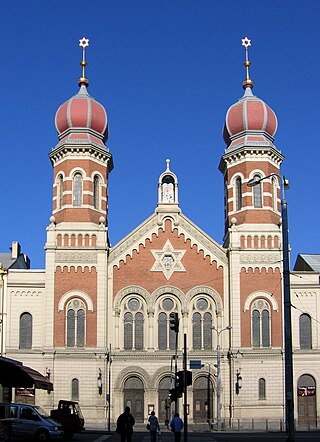
The Great Synagogue is a Reform Jewish congregation and synagogue, located in Plzeň, in the Czech Republic. The synagogue is the second largest synagogue in Europe.

The Polnische Schul was an Orthodox Jewish synagogue, located in Leopoldsgasse, Vienna, Austria.
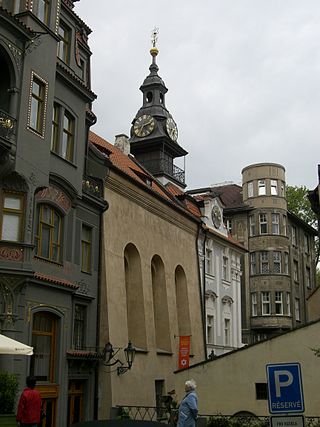
The High Synagogue, also called the Josefov Vysoká Synagogue, is a Jewish congregation and synagogue, located on Červená ulice, Prague, in the Czech Republic. Used as a synagogue from 1658 until World War II, the building is now part of the Jewish Museum of Prague.
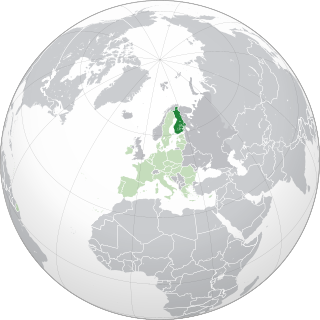
The history of the Jews in Finland goes back to the late 18th century. Many of the first Jews to arrive were nineteenth-century Russian soldiers who stayed in Finland after their military service ended. The two synagogues in active use today in Finland were built by Jewish congregations in Helsinki and Turku in 1906 and 1912, respectively. The Vyborg Synagogue was destroyed by Russian air bombings on 30 November 1939, the first day of the Winter War. Today, Finland is home to around 1,800 Jews, of which 1,400 live in the Greater Helsinki area and 200 in Turku. Finnish and Swedish are the most common mother tongues of Jews in Finland, and many also speak Yiddish, German, Russian or Hebrew. Since data collection began in 2008, incidents of antisemitism have been on the rise in Finland. The number of incidents are likely under-reported, as Finland does not have a systematic method for recording specific forms of hate speech that incite violence or hatred.

The Dolní Kounice Synagogue is a former Orthodox Jewish synagogue, located in Dolní Kounice in the South Moravian Region of the Czech Republic. The building was completed in 1655 and was used as a synagogue by the Ashkenazi congregation until 1939. The building has been used as a Jewish museum since 1994.
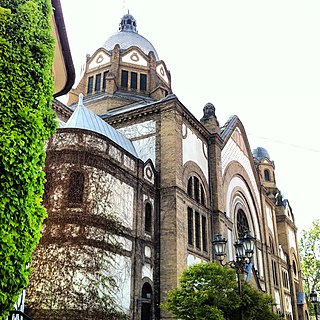
The Novi Sad Synagogue is a former Neolog Jewish congregation and synagogue, located on Jevrejska (Jewish) Street, in the city center of Novi Sad, in the province of Vojvodina, Serbia. Completed in 1909, the building was used as a synagogue until c. 1966; and subsequently used as cultural center since 2012. During its use, with a capacity of 900 worshipers, the synagogue was one of the largest synagogues in Central Europe.

The Maisel Synagogue is a Jewish congregation and synagogue, located in the former Jewish quarter of Prague, in the Czech Republic. The synagogue was built at the end of the 16th century in the Gothic Revival style. Since then its appearance has changed several times. The synagogue belongs to the Jewish Community of Prague and is administered by the Jewish Museum in Prague as a part of its exhibitions.
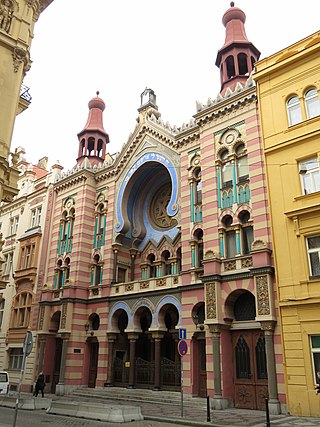
The Jubilee Synagogue, also known as the Jerusalem Synagogue, is an Orthodox Jewish synagogue, located on Jerusalem Street in the Nove Mesto district of Prague, in the Czech Republic. It is the largest synagogue in Prague.

Nová Cerekev is a market town in Pelhřimov District in the Vysočina Region of the Czech Republic. It has about 1,100 inhabitants.
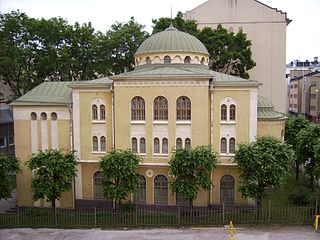
Turku Synagogue is a Jewish synagogue, located in the VII District of Turku, Finland.

The Golden Rose Synagogue, known also as the Nachmanowicz Synagogue, or the Turei Zahav Synagogue was an Orthodox Jewish synagogue, located in Lviv, in what is now the Lviv Oblast in western Ukraine. The Golden Rose Synagogue, established in 1582 in the Polish–Lithuanian Commonwealth, was the oldest synagogue in what is now Ukraine. From September 1603 until 1801, the Golden Rose served as the main communal synagogue while the Great City Synagogue expanded its facilities. Both the Golden Rose and Great City synagogues were destroyed by Nazis during World War II.
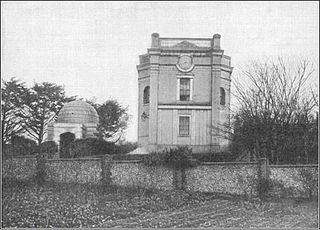
The Montefiore Synagogue is the private Orthodox Jewish synagogue and adjacent mausoleum of the late Sir Moses Montefiore, located on Honeysuckle Road, Hereson, in Ramsgate, Kent, England, in the United Kingdom.

The Krnov Synagogue is a former Jewish synagogue, located on Soukenická Street in Krnov, in the Czech Republic. Completed in 1871, the former synagogue is one of only three surviving synagogue buildings in the Moravian-Silesian Region.
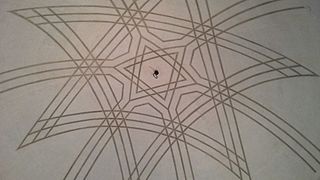
The New Synagogue of Žilina, Slovakia, was constructed between 1928 and 1931 to the designs of the German modernist architect Peter Behrens. It is sometimes referred to as the Neological or Neolog Synagogue, as it housed the Neolog congregation of the town. Completed eight years before World War II, which almost obliterated the Jewish population of Slovakia, it has been called "the last Slovak synagogue". Having been used for other purposes after WW2, it was restored 2011-17 to become an arts centre.

The Brodsky Synagogue is a Reform Jewish synagogue, located at Zhukovskoho Street 18, in Odesa, Ukraine.

The Great City Synagogue was a former Orthodox Jewish synagogue in the city of Lviv, in what is now the Lviv Oblast of Ukraine. It was situated in the former Jewish Quarter near today's city centre.

Finland uses Eastern European Time (EET) during the winter as standard time and Eastern European Summer Time (EEST) during the summer as daylight saving time. EET is two hours ahead of coordinated universal time (UTC+02:00) and EEST is three hours ahead of coordinated universal time (UTC+03:00). Finland adopted EET on 30 April 1921, and has observed daylight saving time in its current alignment since 1981 by advancing the clock forward one hour at 03:00 EET on the last Sunday in March and back at 04:00 EET on the last Sunday in October, doing so an hour earlier for the first two years.

The Beth ha-midrash synagogue is a former Jewish synagogue and bet midrash, located in Prostějov, in the Olomouc Region of the Czech Republic.























